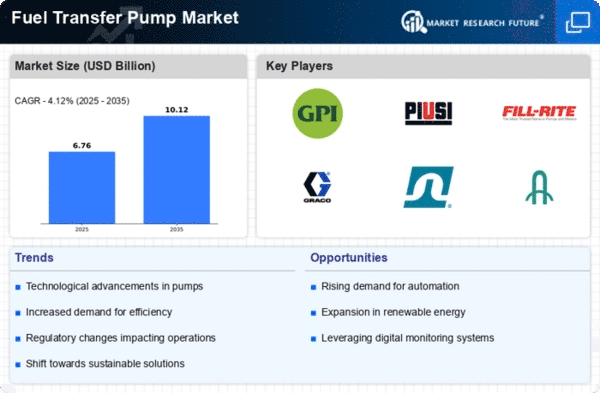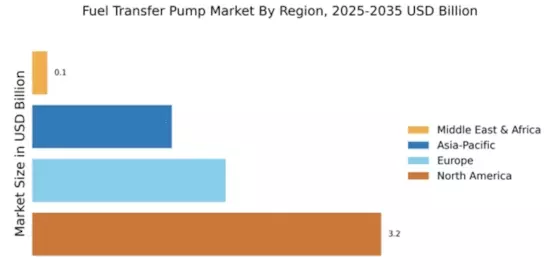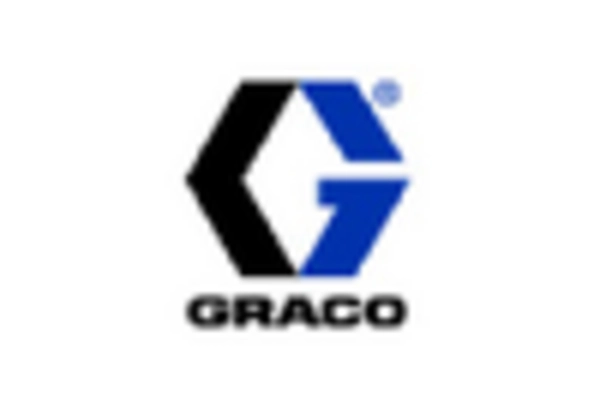Growth of Renewable Energy Sector
The Global Fuel Transfer Pump Market Industry is influenced by the expanding renewable energy sector, particularly in biofuels and alternative energy sources. As countries strive to transition towards greener energy solutions, the demand for fuel transfer pumps that can handle biofuels and other renewable resources is on the rise. This shift not only supports sustainability goals but also opens new avenues for pump manufacturers to diversify their product offerings. The increasing investments in renewable energy infrastructure are likely to bolster the market, aligning with global efforts to reduce carbon emissions and promote cleaner fuel alternatives.
Expansion of Fuel Distribution Networks
The expansion of fuel distribution networks is a key driver for the Global Fuel Transfer Pump Market Industry. As urbanization and industrialization continue to rise globally, the need for efficient fuel distribution systems becomes increasingly critical. This expansion necessitates the deployment of advanced fuel transfer pumps to ensure timely and safe fuel delivery. The market is expected to benefit from this trend, with projections indicating a growth to 10.1 USD Billion by 2035. Enhanced logistics and distribution capabilities are essential for meeting the growing fuel demands of various sectors, thereby driving the adoption of fuel transfer pumps.
Rising Demand for Fuel Transfer Solutions
The Global Fuel Transfer Pump Market Industry experiences an increasing demand for efficient fuel transfer solutions across various sectors, including automotive, agriculture, and construction. This trend is driven by the need for reliable and safe fuel handling practices, particularly in regions with stringent regulations. As industries expand, the market is projected to reach 6.49 USD Billion in 2024, reflecting a growing reliance on fuel transfer pumps to enhance operational efficiency. The emphasis on safety and compliance further propels this demand, as organizations seek to mitigate risks associated with fuel spills and contamination.
Technological Advancements in Pump Design
Technological innovations play a pivotal role in shaping the Global Fuel Transfer Pump Market Industry. The introduction of advanced materials and smart technologies enhances the performance and durability of fuel transfer pumps. For instance, the integration of IoT capabilities allows for real-time monitoring and predictive maintenance, which can significantly reduce downtime. As a result, manufacturers are increasingly investing in research and development to create more efficient and user-friendly products. This focus on innovation is expected to contribute to the market's growth, with projections indicating a compound annual growth rate of 4.12% from 2025 to 2035.
Regulatory Compliance and Safety Standards
Regulatory compliance and safety standards significantly impact the Global Fuel Transfer Pump Market Industry. Governments worldwide are implementing stringent regulations to ensure safe fuel handling and storage practices. Compliance with these regulations necessitates the use of high-quality fuel transfer pumps that meet safety standards. This requirement drives demand as businesses seek to avoid penalties and enhance their operational safety. The focus on environmental protection and worker safety further emphasizes the importance of reliable fuel transfer solutions, thereby contributing to the market's growth trajectory as organizations prioritize compliance in their operations.

















